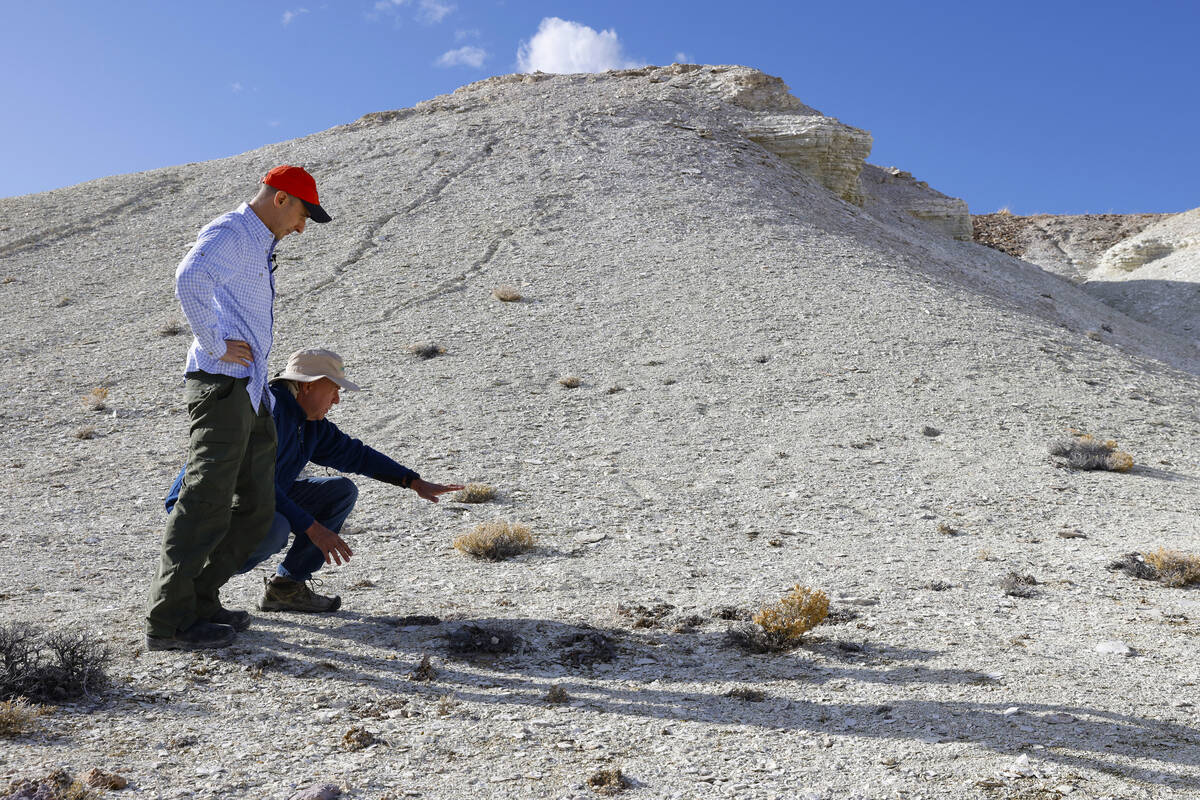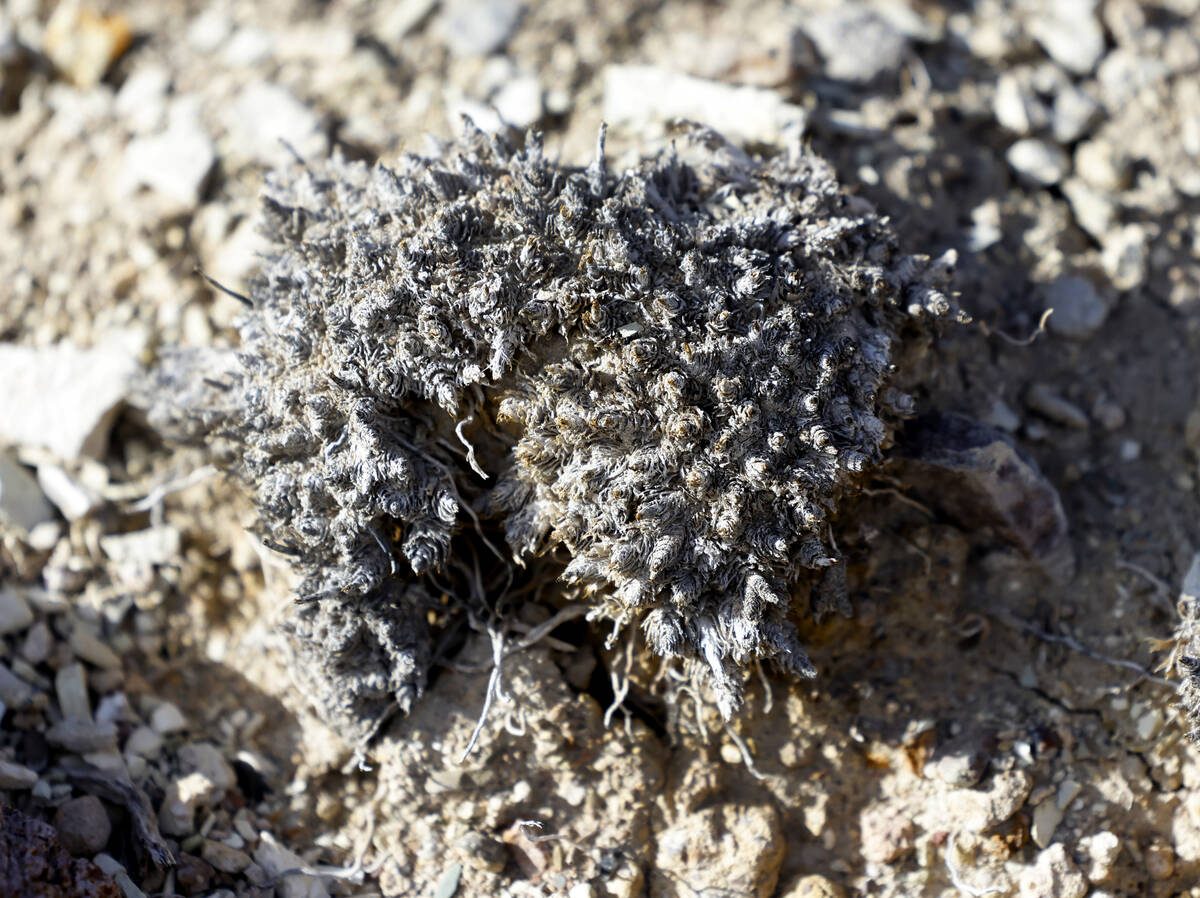Nevada lithium mine advances, despite concerns about endangered species
A proposed lithium-boron mine that’s sparked concern for a rare, endangered wildflower in Nevada is closer than ever to getting complete federal approval.
The Bureau of Land Management released the project’s final environmental impact statement last week without much change from the draft — one that the company has touted as responsible and environmentalists have called an unacceptable threat to a federally endangered plant species that grows nowhere else in the world.
Located just miles away from the country’s only existing lithium mine in Nevada’s least populated county, the project would take four years to construct and mine enough lithium to power roughly 370,000 electric vehicles at the height of the facility’s 23-year life.
Since Bernard Rowe, managing director and CEO of Australia-based minerals start-up Ioneer, drilled the first exploratory hole in 2018 and Tiehm’s buckwheat was declared endangered in 2022, the mine’s proposed plan has shifted a lot.
Through a series of operational changes such as relocating an evaporative pit lake, the mine will only disrupt about 21 percent of the flower’s habitat instead of the original 40 to 50 percent.
“It’s a good example of how the process is meant to work,” Rowe told the Las Vegas Review-Journal. “This is a project where it shows that there’s been extensive consultation and modification over time. And what we’ve ended up with is a far better project than what we started with.”
The company received a $700 million conditional loan from the U.S. Department of Energy last year, signaling the importance and urgency that the Biden-Harris administration has placed on establishing a domestic supply chain for lithium, which is used in EV batteries.
The deposit’s unusual concentration of boron, another mineral the project will harvest, will help stabilize profits in a global mineral economy that has seen lithium prices plummet, Rowe said.
Nevada’s immense public lands with rich lithium deposits make it a prime candidate for mining. The University of Nevada, Reno was awarded a federal Tech Hub designation, too, tasked with closing the so-called “lithium loop” in the state, meaning that everything from mining lithium to recycling batteries after use would take place in Nevada.
The fight for Tiehm’s buckwheat
Tiehm’s buckwheat’s most ardent protector has been Patrick Donnelly, Great Basin director of the Center for Biological Diversity, whose organization led the effort to petition the U.S. Fish and Wildlife Service to list it for Endangered Species Act protections.

Attached to the environmental impact statement is the Fish and Wildlife Service’s biological opinion, which concludes that the mine is “not likely to jeopardize the continued existence” of Tiehm’s buckwheat or “result in the destruction or adverse modification of its critical habitat.”
Donnelly said he interprets this as the agency effectively issuing a “license to kill” with the decision. A group of 100 scientists from across the country signed a letter in 2020 arguing that the mine would lead to the extinction of the species.
“The most distressing part is the science,” he said. “They have discounted independent scientists and peer-reviewed science. Instead, they’re relying on Ioneer’s consultants.”
Part of Ioneer’s plan to address Tiehm’s buckwheat is a greenhouse dedicated to cultivating seeds.
It’s been met with some skepticism, but Rowe said initial efforts to place a cultivated version of the plant near its habitat were successful, though animals did eat the young plants after three months.
“That program actually went really well,” Rowe said, adding that his company has been happy to bankroll conservation efforts that may not have occurred without its involvement. “We have pretty high germination rates.”
While Donnelly said his organization hasn’t decided to pursue a lawsuit yet, he’s confident lawyers will be able to prove that the Interior Department’s decision-making has been “arbitrary and capricious,” as laid out by law, rather than based on scientific reasoning.
“We can all want lithium really badly, but the law is the law,” he said. “This (environmental impact statement) is breaking the law, and the fact that we all want lithium for electric vehicles doesn’t change that.”
The last public comment period for this project closes Oct. 21. To submit comments, find instructions on how to do so at https://eplanning.blm.gov/eplanning-ui/project/2012309/570.
Contact Alan Halaly at ahalaly@reviewjournal.com. Follow @AlanHalaly on X.


















